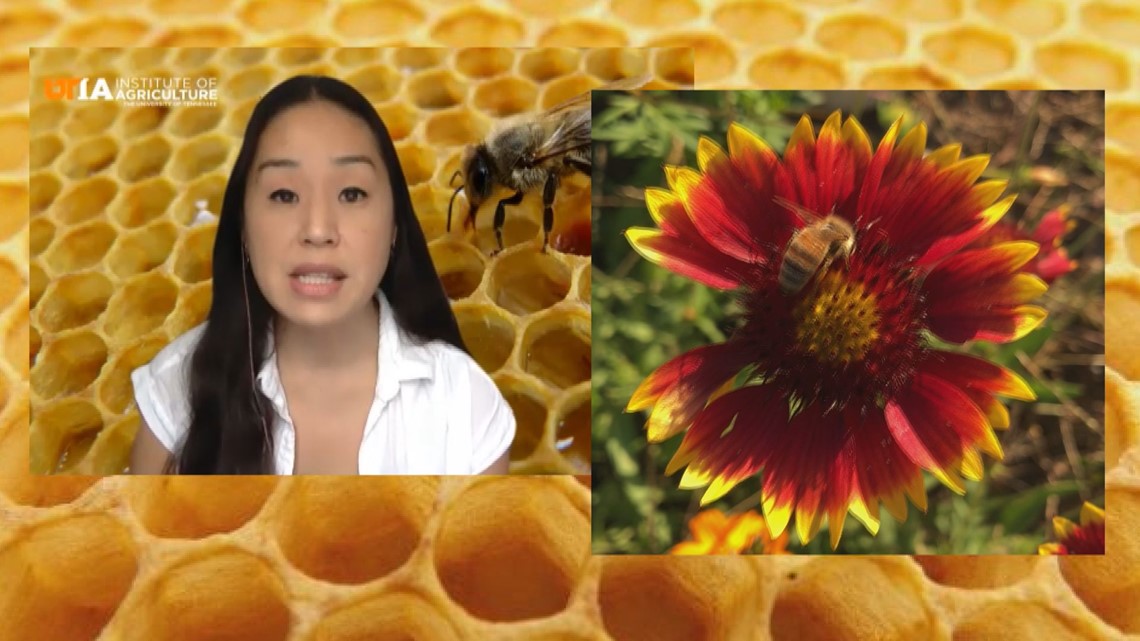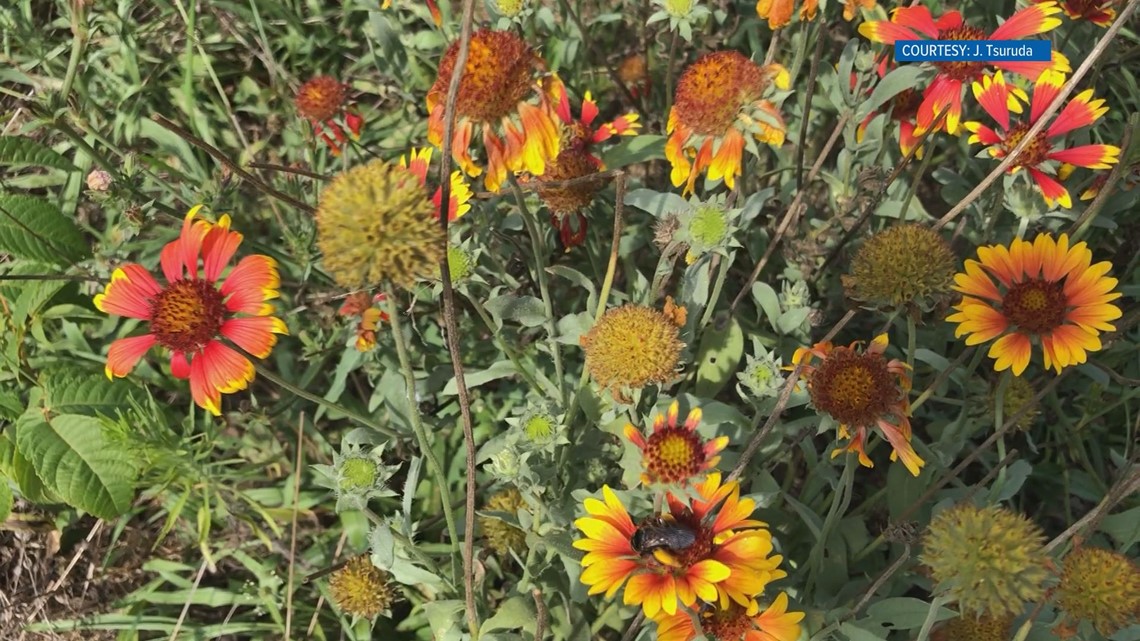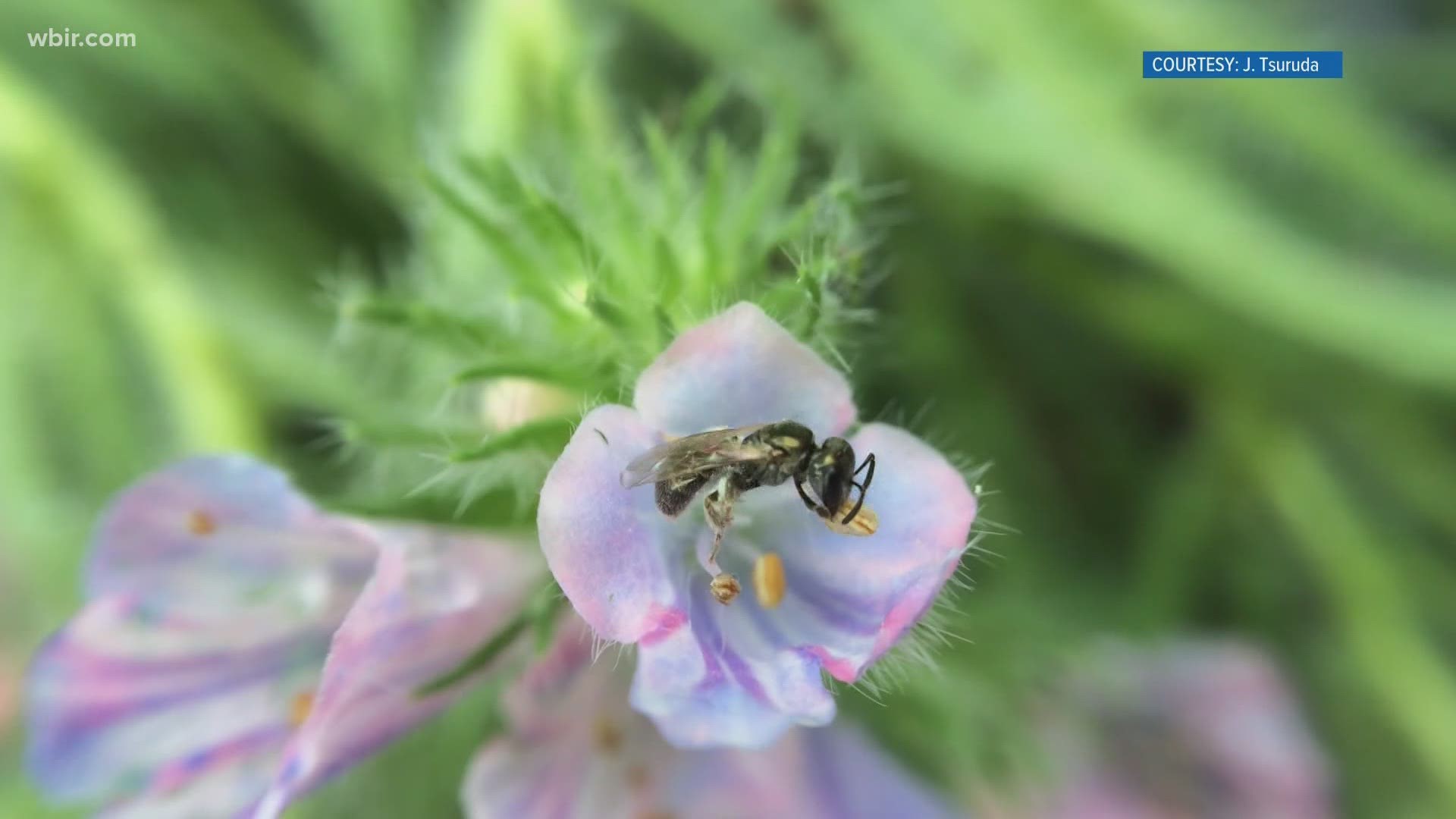KNOXVILLE, Tennessee — Bees face a challenge foraging for food and you can help.
Putting a few flowers in your yard may give bees a snack but a more mindful planting plan could make meals.
"We encourage everybody to plant, as much as possible for all types of pollinators, but especially for the bees, my little motto is going to feed the bees so they can help feed us," Jennifer Tsuruda said.
She is an assistant professor of entomology and plant pathology at UT's Institute of Agriculture and also the bee keeping specialist for the state of Tennessee with an expertise in honey bees.
"I help the beekeepers across the state, helping them with their management of their hives, making sure that they're successful they can be," she said.
She helps the beekeepers and the bees help all of us.


They move around flowers collecting nectar and pollen and fertilizing plants that in turn produce food for people and animals.
"There's an estimate that about one out of every three bites of food that we think has somehow been affected through animal pollination. So they have a huge impact on day to day life," she said. "Different bees work in different ways and so some maybe some of the native bees may be better at doing pollination of certain crops on a per visit basis, but if you don't happen to have those native bees in your area one way you can up your pollination is by bringing in colonies of honeybees and that way you can bring in 50,000 bees in one box."
Pests, pathogens and pesticides are bad for bees. All types of bees face a challenge of finding food.
"What we really want people to do is to plant as much as possible for the bees," Jennifer Tsuruda said. "I try to plant things that are going to be easy and that are not going to need a ton of care for me and if they come back year after year, whether it be as a perennial or because of the annual that repeats themselves. That's fantastic. I like things that are low maintenance and hardy and don't need me to babysit them."
Her easy-to-grow recommendations for East Tennessee are buckwheat, mountain mint, and blanketflower.


"Planting buckwheat can be really beneficial. It's a relatively cheap seed, hardy, you can plant, acres and acres for a little bit of money, and you'll attract both native bees as well as honeybees. Another great one is mountain mint, that's the one that can be used in a yard landscape. It is a pretty shrub and attracts all types of bees. And then blanket flower is one that I would really recommend, because there's just so many different types of bees and pollinators that visit it, and it blooms, this area what from what I've seen it blooms from around April, until November," she said.
Variety is key.
"Try to plant, different types of flowers different colors, different shapes, different flowers that bloom during different times of the year, you'd like to see at least three species of flowers in a garden blooming at every season."

